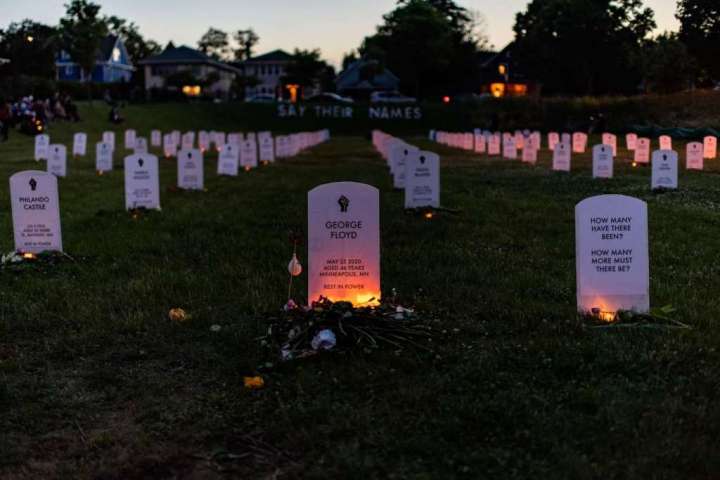Ben Crump is a lawyer who specializes in civil rights and catastrophic personal injury cases.
It’s been two years and Black people still can’t breathe

That’s why Floyd’s dying words — “I can’t breathe” — spoke for us all. People of all races took to the streets to demand accountability, justice and reform. But most of all, Black people wanted security — the chance to exhale, to experience the serenity of knowing we would not continue to be targeted for harm based on the color of our skin.
On anniversaries like this, it’s hard not to ask: Have we seen progress?
In the Floyd case we witnessed convictions. Derek Chauvin was found guilty of second-degree unintentional murder, third-degree murder and second-degree manslaughter, and the other three officers on the scene were convicted of federal civil rights offenses. Accountability.
I will never forget when the Floyd family, after a grueling trial in which they watched George’s death over and over, heard the verdict read — “guilty, guilty, guilty” — and immediately received a call from President Biden. It was a moment of catharsis and hope that things could change.
What about justice? True justice is, of course, impossible. When the life of a person who is treasured by so many is wrongfully ended, nothing can make up for that loss. A civil action is the best remedy we have not only to provide a measure of justice to a grieving family but even more to serve as a costly deterrent to future bad behavior.
The city of Minneapolis’s $27 million settlement with the Floyd family sent a message to police departments throughout the country that they will pay a high price for egregious behavior.
In fact, they are paying. In an analysis published in March, The Post found that 25 police and sheriff’s departments had paid out more than $3 billion over the past 10 years for citizens wrongly injured or killed by the police. Nearly half that money went to resolving allegations involving officers who had repeated complaints or lawsuits against them for misconduct.
Then there’s reform. More than 140 police oversight and reform bills passed at the state and local levels after Floyd’s death. But the sweeping, comprehensive reform that would transform policing and reframe the relationship between police departments and people of color stalled from a lack of political will. The George Floyd Justice in Policing Act passed in the House but died in the Senate.
The consequence of this unfinished business is that Black people lack the final, most important measure of progress: security, the chance to exhale and simply live our lives.
Last year was one of the deadliest on record for police violence, with the police killing an average of three Americans a day. That truth takes a heavier-than-average toll on Black Americans. Police violence is a leading cause of death among young Black men, and unarmed Black people are three times more likely to be shot by the police than are unarmed White people.
That death toll has names: Andre Hill, armed only with a cellphone, fatally shot in Ohio. Amir Locke, shot to death in the execution of a no-knock warrant for which he was not the target. Patrick Lyoya, a Congolese refugee who died face down on the ground, shot in the back of the head by a Michigan officer.
The list goes on. And on. This is the price of the unfinished business of police reform.
In April, the Minnesota Department of Human Rights (MDHR) documented that the Minneapolis Police Department had a long-standing pattern of racial discrimination in its policing, with life-threatening consequences for the Black community. The study told us little we didn’t know — but it was groundbreaking in that someone had finally bothered to look. What would we find if we similarly looked at the other 18,000 police departments around the country?
When Biden became president-elect, he said he’d have our backs. It’s time for him to show us.
If reform isn’t possible at the federal level, he can push for it in the states. Press for the kind of reviews done by the MDHR. Create a national database of police misconduct. Tie federal funds to meaningful policy change. Impose national standards for police training so we aren’t left with racist extremists training the next generation of officers.
Only with widespread police reform will Black Americans ever get to breathe.






